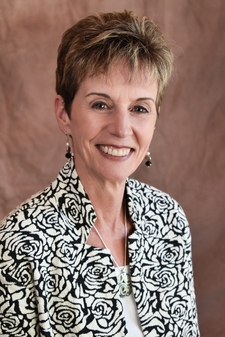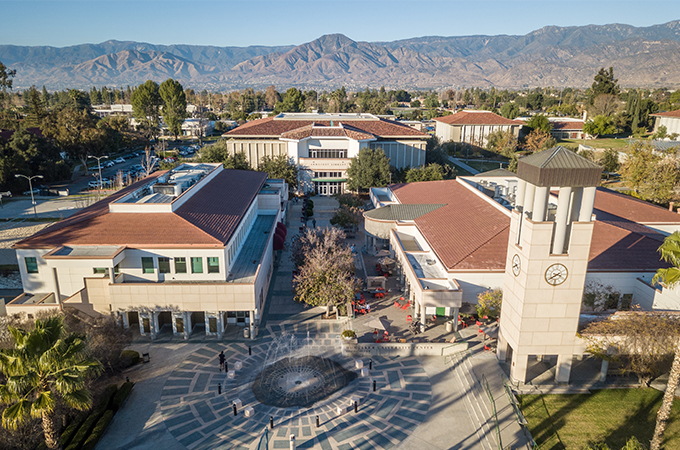Even before COVID-19 began to dominate the headlines, the University of Redlands assembled a team to manage a response. Here, Donna Eddleman, University Dean of Student Affairs and chair of U of R’s Coronavirus Response Team, describes the ways in which the University community has risen to the challenge of these unusual times.

Bulldog Blog: Why was the Coronavirus Response Team created?
Donna Eddleman: In February, the reality of what was happening internationally and within our country led to the formation of the Coronavirus Response Team. The University president tasked us with thinking about how the institution was going to respond, what courses of action we might need to take, and what was going to inform our decision-making. The team, which included stakeholders representing our campus collectively, later merged with the University’s larger Emergency Preparedness Planning Committee.
BB: Tell us about a couple of the group’s pivotal decisions.
Eddleman: For me, the most significant decision was to close our residence halls. I will forever remember a conversation I had with a student who was pushing for us to send students home. I valued that student’s insights, but what I said to him was, “We have to think about our campus, our student population, and their various stories, including where they’re from. We have international students who can’t go home, and some students face challenges when they arrive home. ‘Home’ means lots of different things to lots of different people.” Ultimately, we did close the residence halls, but that decision was made only after serious consideration of the implications.
BB: Did the team also decide to bring study abroad students back?
Eddleman: That evolved very quickly, and it certainly wasn’t easy. In the end, we recalled all study abroad students through a collaborative effort involving many people. In some cases, the students could return to the U.S. and continue their coursework online; in other cases, because of differing academic calendars in other countries, students hadn’t even started their semesters yet. The other piece was agreeing that students should go home, rather than returning to campus. In Redlands, the semester was more than half over, and we felt the risks of bringing students back to campus outweighed any benefit. Our study abroad students and their families were patient and responsive, despite the pressures and the uncertainty that surrounded us.
BB: Have you faced any similar crises before in your career?
Eddleman: I was in Virginia when the Virginia Tech shooting happened—I was on a college campus with students whose parents or families worked at Tech or who had a best friend or sibling there. I was on that same campus when 9/11 happened. That was probably my most challenging crisis leadership role, because I was a co-chair of a campus task force to respond. The difference between 9/11 and what we’re experiencing now was that after 9/11 we could see an endpoint—a point where people knew they were safe. Because COVID-19 is so unpredictable, it is much more difficult to develop a long-term strategy.
BB: How have members of your team in Student Affairs responded?
Eddleman: Residence Life staff played a huge role in helping students make the transition. Once the decision was made it really became all-hands-on-deck for folks across the division; from trying to identify students who needed help getting from point A to point B to securing boxes for the move-out, supporting mental and physical health concerns, helping students buy plane tickets home, and providing emotional support to our students and to each other. I’m really proud of how our team came together, and I continue to be proud of the creative ways in which they're engaging our current students and the admitted students we are now welcoming into our community. Our work is a testament to the students we serve and the community we try very hard to cultivate and grow. I’m really proud to be a member of the Student Affairs team.
BB: What do you think things will look like in the coming weeks and months?
Eddleman: We have to plan for the worst and hope for the best. As an institution, there are ways to be present online. We can build community in virtual spaces. We have to be innovative in terms of how we think about doing that. I’m optimistic that we will welcome students back to a residential campus in the fall, although it’s reasonable to expect a new level of caution. Our programming lens will have to shift in terms of what, where, and how—and we most certainly will have to be nimble.
Learn more about student affairs at the University of Redlands.






